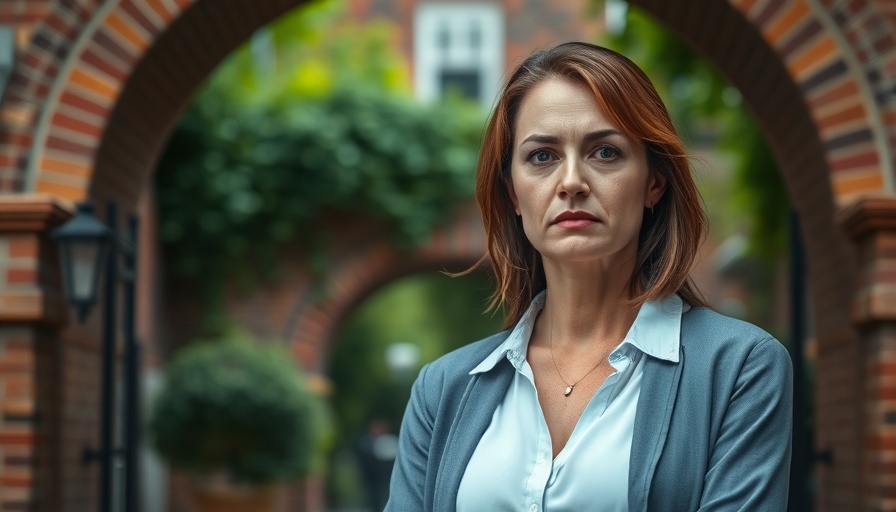
The Hidden Realities of Jury Duty: Beyond Civic Responsibility
For many, jury duty is considered a civic responsibility—a moment when citizens contribute to the justice system. Yet, few people acknowledge the potential mental toll it can take on jurors, particularly those exposed to distressing cases. Chloe Beck’s experience as an alternate juror in a murder trial is a poignant example of hidden trauma that can linger long after a verdict is rendered.
Emotional Impact: A Juror's Personal Journey
Chloe Beck initially viewed her jury duty call with enthusiasm, thinking it would be a break from her routine. However, this enthusiasm quickly turned into horror as she delved deep into the trial of a nanny charged with brutally murdering two children. “I still see those images,” Beck shared, illustrating how the vivid memories of the trial haunt her daily life, affecting everything from her emotional well-being to significant life decisions, including the choice of whether to have children.
Understanding Trauma in the Courtroom
Research indicates that around 50% of jurors who participate in traumatic cases may experience symptoms of post-traumatic stress disorder (PTSD). The trauma doesn’t just impact their mental stability; it can disrupt their lives in profound ways. In Beck's case, after grappling with feelings of anxiety and panic attacks, she was diagnosed with PTSD—a stark reminder of the veiled dangers that lie within courthouse walls.
Changing Perceptions: A Shift Towards Support
Historically, jurors have received minimal support post-trial, often left to process the trauma alone. This is now beginning to change, with states and cities recognizing the need for psychological support services tailored to jurors. As awareness grows, more jurisdictions are discussing implementing debriefings and psychological assistance programs to help jurors cope.
What Jurors Can Do: Steps Toward Healing
Jurors should be encouraged to seek help if they feel overwhelmed after serving on a trial. This could involve talking to mental health professionals who can help process traumatic experiences. Additionally, workshops and support groups may provide a safe space for jurors to express their feelings among peers who have undergone similar experiences.
Broader Implications: Society’s Role in Supporting Jurors
Just as jurors face the direct consequences of their service, society at large has a responsibility to support those who step into the courtroom. By expanding mental health resources, we can reduce stigma and promote healing. This is not only beneficial for the jurors themselves but also contributes positively to the very foundation of the judicial system.
Conclusion: The Importance of Awareness
Awareness of the psychological impact of jury duty is critical. As more people recognize that serving justice can lead to hidden psychological scars, initiatives for support systems must be prioritized. Society thrives when we protect and care for those who serve to uphold it; thus, addressing juror trauma is a collective obligation.
As discussions about mental health continue to evolve, it’s crucial for jurors like Chloe Beck to feel empowered to speak about their experiences openly. Her story serves as a reminder that the repercussions of jury service extend far beyond trial verdicts and into the realms of lives deeply affected by the pursuit of justice.
 Add Row
Add Row  Add
Add 




Write A Comment